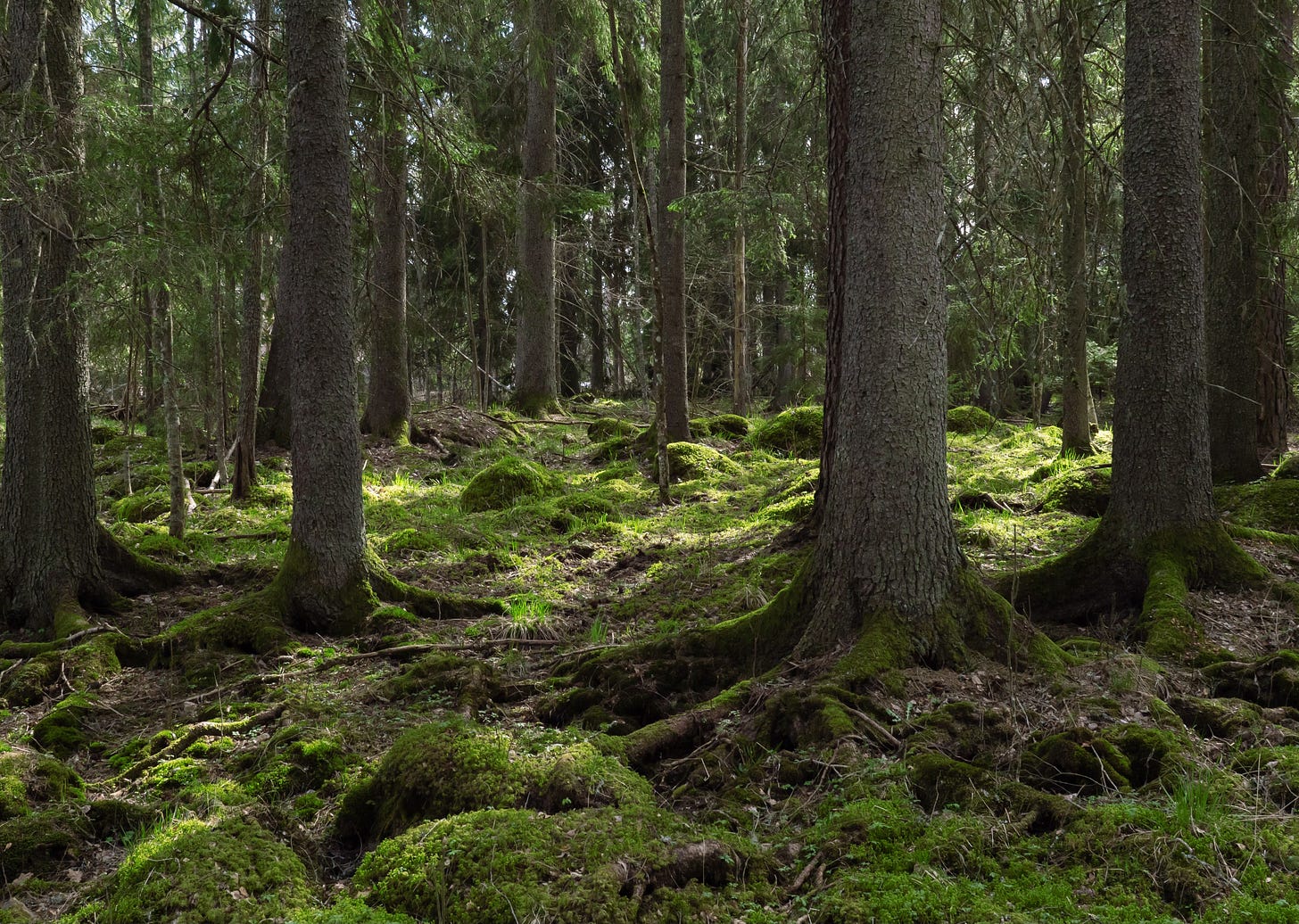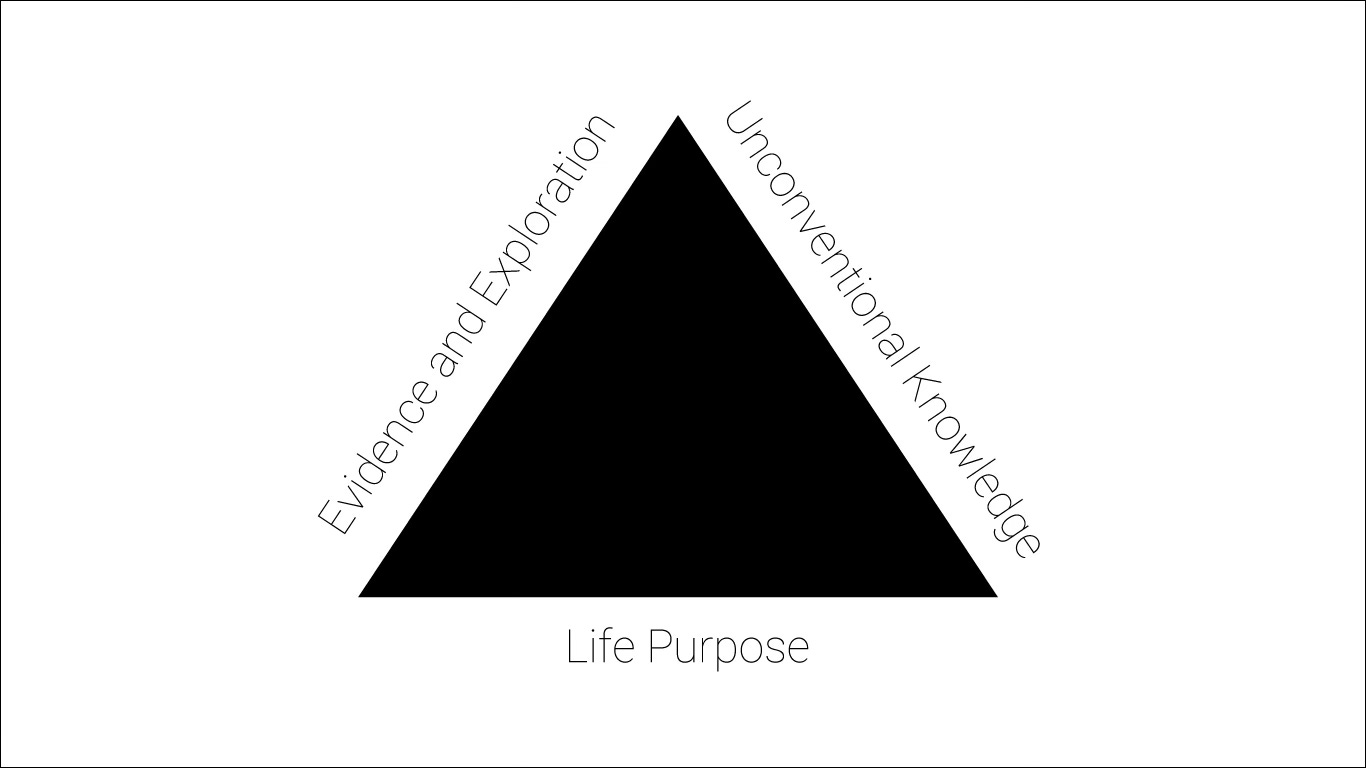Try this if you want to find your inner compass and lead with purpose.
How I align purpose, knowledge, and exploration.

I have been designing a framework for my life. I thought it would be helpful to share it today.
I have tested it to help me build my resilience, regardless of uncertainty. It helped me discover a deeper meaning and guided me on a path that's intentional and adaptable.
It encouraged me to amplify my strengths and values. It has inspired me to explore my adventurous side and practising incremental growth.
My framework has helped me simplify my life through a holistic approach based on three aspects. It combines Life Purpose, Unconventional Knowledge from off-the-beaten-track cultures, Evidence and Exploration.
It has sharpened my creative problem-solving and leadership skills, which are vital in today's rapidly changing world.
Also, in solving problems with a systems view. It has made a more significant impact on my life. I am more aware of the results of my work. I feel more accomplished and energized. I contribute to my highest self and bring me more human touch.
As a modern explorer, I know my journeys are linked to the human experience. My choices, insights, and actions create a larger story. They shape my life and, hopefully, the world around me.
With this framework, I can:
1. Create a competence map that aligns with my inner self.
2. Explore unconventional life approaches.
3. Apply a science-based approach to my unique challenges.
The three main points have helped me reflect more deeply on the positive impact I want to make. Let's dive in.
Life Purpose
This focal area is about knowing my direction while staying open to new experiences.
Let's first think of three routes as a metaphor for the paths we choose in life.
The Wanderer route:
Imagine leaving home without knowing where you want to go. There are no guidelines or boundaries to guide your decisions. Here, the goal needs to be narrower, and the path needs direction.
When I was 16 years old, I decided to study textile and fashion design on the finest coastline of Lisbon. Later on, I studieda BA in digital design and an MA in visual culture. I had no clear path for the future. My journey was liberating. I used my creativity and found inspiration. But I lacked focus. Without a clear goal, I was not growing.
The Planner route:
This is when I define my goal and the route to get there. If I fix everything beforehand, there is no room for new experiences and insights. However, this approach provides a sense of control and certainty, as the goal is narrow, and there is much focus.
When I started working in design, I planned every detail. I defined my target market and growth strategy. This gave me control and certainty. But I missed unexpected opportunities because I was too focused on the plan.
The Adventurer route:
Here, I know my goal and have a general direction, but I leave room for new experiences and insights. I have an idea of what I would like my route to be, but I am open to new directions.
This approach is like embarking on an adventure, ensuring you have a goal but keeping an open mind about the road you'll take to get there. So, there is a goal with opportunities and a focus on balance.
I made the decision to leave my birth country. I wanted to understand my place in the world. Here, I combined planning with leaving space for growth in the direction I wanted to pursue. I wanted to grow in interaction design. I also wanted to live in places with a culture that resonated with me. I hoped to grow out of my comfort zone.
This journey would transform me in unexpected ways, not only as a designer but also as a human being. It deepened my understanding of resilience in tough, innovative times.
Which of these journeys would you choose for yourself?
Knowing where you want to go is often challenging. To understand what we want, we must be honest with ourselves.
Unconventional Knowledge
This focal area is about how embracing unconventional knowledge can change my life. I have been witnessing challenging events worldwide, affecting me in many ways.
How might I amplify goodwill in my life and community?
What if I challenge conventional thinking?
What if I explore alternative perspectives, incorporating insights from indigenous communities?
To me, wisdom means the ability to adapt, innovate, and think beyond societal expectations.
When I took part in the Fjällräven Classic event in Lapland, I immersed myself in the remote Arctic. During the six-day Kebnekaise hike, which spanned 110 kilometres, I lived in a tent and learned valuable survival skills.
The event aimed to inspire eco-conscious travellers like me to protect the environment. It was a trip to a secluded area that respected and honoured the local culture and environment.
This experience completely changed my perspective on sustainability. I began to see it as more than a business strategy; it was now a key part of my role as a consumer, traveller, and designer. I began to think about the circular economy and adopted a holistic approach to understand my impact on the planet. I used these insights in my work, advocating for business models that prioritized environmental stewardship.
Understanding and empathizing with different viewpoints has been essential for me. It allows me to practice independent thinking. Reflect on my first-hand multicultural experiences, observations, and ideas. I use them to uncover insights and generate innovative solutions by challenging biases.
I like to embrace the continuous pursuit of knowledge from diverse sources and keep an open and curious mind. I enjoy connecting with people from different cultural backgrounds to gain a holistic understanding and find unconventional ways to create. These are important practices for me, and this layer goes deeper to the root of the challenges I face now. It will continue to persist in the coming years.
Using unconventional knowledge allows me to focus on strategies that positively impact the system level of my business and the context to which I contribute.
Evidence and Exploration
This focal area is about being open-minded and curious, seeking knowledge from reliable scientific sources. The findings gathered can be intentionally tested and iterated according to purposeful creation.
I am committed to the scientific method of inquiry. It is based on critical thinking and embracing the spirit of exploration. Combining research and practice based on critical thinking helps me stay innovative and responsive to my business.
During a research project at Lund University and while working as a designer in Denmark and Sweden, we applied scientific methods rigorously—testing hypotheses, iterating on product features based on data, and continuously learning from our results. This method, based on critical thinking, kept us innovative and helped us respond to users' needs (children with cognitive disabilities).
This and many other experiences taught me to stay calm in tough times and take things one step at a time.
My "lab" is a metaphor. It is a space to grow. I seek to refine my understanding and add to human knowledge, and I encourage you to do the same.
In a time of drastic change, it is the learners who inherit the future.
The learned usually find themselves equipped to live in a world that no longer exists. — Eric Hoffer
Choosing a Direction and Setting the Goal
Here's how I create my competence map.
The competence map helps me gain self-awareness, focus, and alignment with my strengths, passions, and financial goals. I find my unique value proposition. It boosts my motivation, improves my decisions, and brings me clarity in uncertain times.
Think about the following questions:
What are the activities I am best at? — I picked three activities.
What are the ones that bring me energy? — I picked three activities.
What are the ones that bring me wealth? — I picked three activities.
Here, I am honest with myself. We creatives enjoy many different activities and can do those things well. Yet, there is a focus on which we should move. So, I pick the three activities I want to do most from the list.
What is the common factor among the three answers is me.
The total overview reveals who I can be. Here, they form a great combination—something unique. In that place lies my growth and happiness.
What overlaps is my competency plan.
If we look within our minds for their best personal insights, our lives will feel—and be—simpler.
Our outcomes are instilled with our own set of ethical principles. We can become thoughtful leaders. We can understand the value of who we are and the outcomes we want to contribute to the world.
We might be susceptible to unconscious biases affecting our solutions. That's why I find it valuable to set my direction and reflect on these three questions.
Combining my life's purpose, indigenous knowledge, evidence and exploration has helped me solve problems more effectively.
Blending these elements with curiosity has inspired me to influence my outcomes with care and trust.
This approach has raised awareness of my life, demonstrating my desire to make a difference.
I hope it will help you feel more centred and energised.
If you enjoyed this post, I’d love to hear your thoughts in the comments or hit the restack button to spread the word.





Your willingness to travel the world and experience so many different cultures and perspectives gives your unique perspective extraordinary credibility. There’s no better way to open your mind than to step outside of your comfort zone and explore without expectations or bias. Great post!
It is pretty amazing how having a plan and writing something down and charting a course can affect how we proceed. It is a guide and easier to be followed. Loved this, Alexandra ❤️